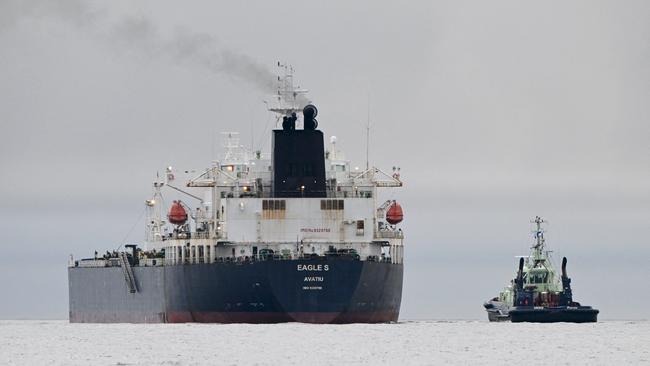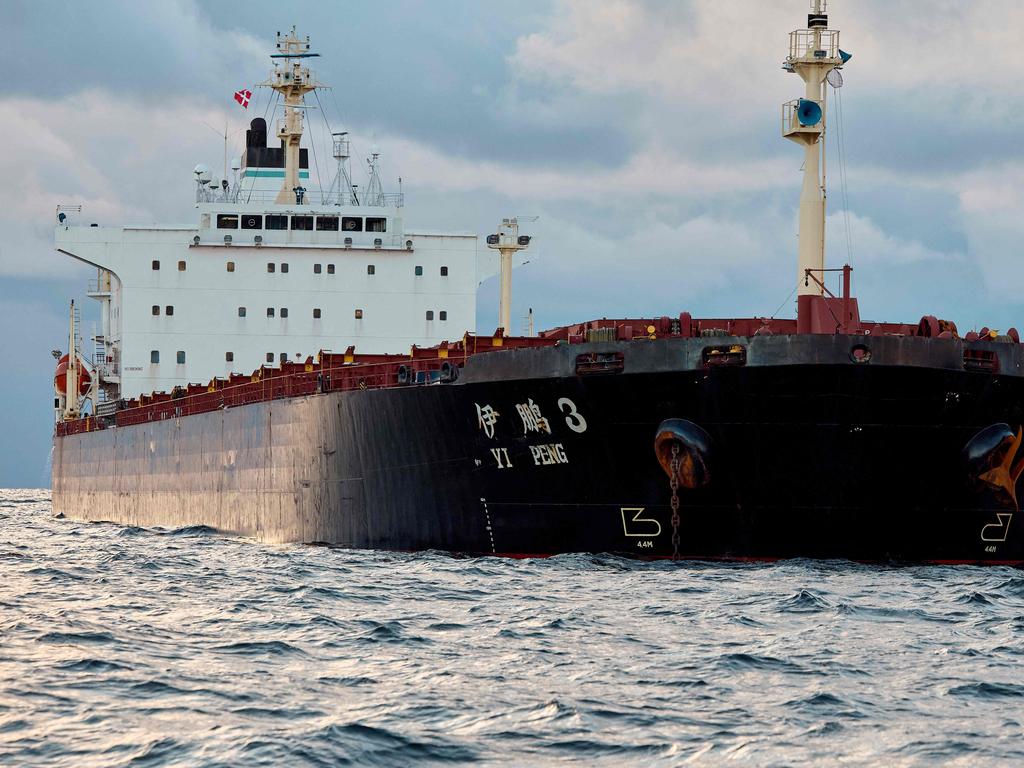Finnish police probing seven sailors over cut cables in Baltic
Seven sailors from the Eagle S tanker suspected of cutting an undersea power cable between Finland and Estonia are targets of a sabotage investigation and have been banned from leaving the country.

Finnish police said Tuesday that seven sailors from the Eagle S tanker suspected of last week cutting an undersea power cable between Finland and Estonia are targets of a sabotage investigation and have been banned from leaving the country.
“Seven staff members whose status in the criminal investigation is that of a suspect have been subjected to a travel ban,” Finnish police said in a statement.
On Christmas Day, the Estlink 2 submarine cable that carries electricity from Finland to Estonia was suddenly disconnected from the grid, just over a month after two telecommunications cables were severed in Swedish territorial waters in the Baltic.
Finnish authorities have been investigating the Eagle S oil tanker that sailed from a Russian port over suspected “sabotage” after it was found nearby missing its anchor.
The Cook Islands-flagged vessel is being held in Finnish waters in the Baltic Sea pending the investigation.
Investigators said Sunday they found a track on the seabed dozens of kilometres in length but have yet to find the anchor.
Underwater investigations resumed on Tuesday after being halted for bad weather, their statement said.

They have also questioned the crew of the Eagle S, which Finnish customs suspect to be part of a “shadow fleet” of ships transporting Russian crude and oil products which are embargoed due to Russia’s invasion of Ukraine.
Elina Katajamaki of Finland’s National Bureau of Investigation said in the police statement the travel ban was a measure to ensure suspects can be contacted and the investigation is not compromised.

The number of suspects may change as the investigation continues, she added. NATO’s secretary general, Mark Rutte, said on Friday the US-led defence alliance would bolster its military presence in the Baltic Sea in response to the incident.
A number of similar incidents targeting energy and telecommunications infrastructure have taken place in Baltic Sea since Russia’s invasion of Ukraine in February 2022, in what analysts suspect are part of “hybrid warfare” underway between Moscow and Western Europe.
AFP





To join the conversation, please log in. Don't have an account? Register
Join the conversation, you are commenting as Logout